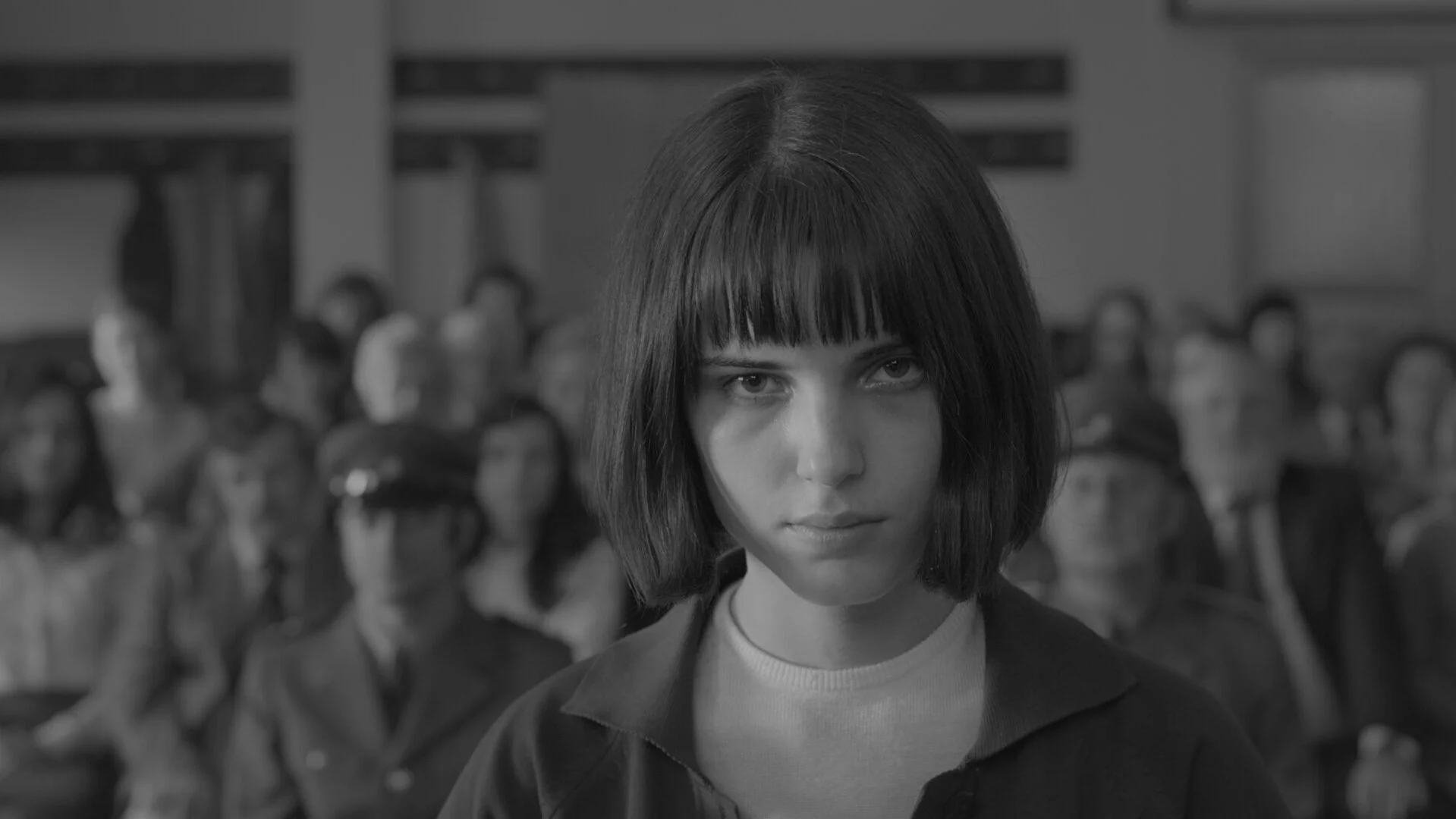I, Olga
A true history starkly presented in a film that makes no concessions.
Michalina Olszanska
It was through events that occurred in Prague in 1973 that the name of Olga Hepnarová became one that Czech citizens would not forget. This film about her, a first feature written and directed by Tomás Weinreb and Petr Kazda, tells her story in a formal, serious way. This is reflected not only in the absence of any music score and in the decision to use black and white photography to underline the period atmosphere of Czech life in the 1960s and 70s but in the whole tone of the film which totally eschews sensationalism in telling what is a harrowing story.
The original Czech title of this co-production was I, Olga Hepnarová, a fact that would immediately ensure that audiences in that country would know exactly where the story being told on screen would lead. Viewers here are much less likely to have that knowledge, but that is no disadvantage since, starting in 1964 when Olga was thirteen, the film follows subsequent stages in her life which soon suggest that tragic violence in one form or another would inevitably come about even if the form that it would take is far from obvious.
Michalina Olszanska who plays her has some of the intensity that used to be associated with the Hungarian actress Lili Monori in her youth. We meet Olga when she has just attempted suicide having been brought up by a tough mother (Klára Melisková) and having been beaten by her father. Sent to a psychiatric institution for girls, she there becomes the victim of bullying and then, seeking affection through a lesbian relationship, finds herself rejected. Understandably she is both turned in on herself and rebellious coming increasingly to the view that the harsh treatment meted out to her is endemic to all mankind. In effect she distances herself from the human race and turns against society with fatal consequences.
Told slowly and with hardly any camera movement, I, Olga is a bleak work that observes Olga in a way that sometimes proves vague about passing time but makes us understand her psychologically. Nevertheless watching this film is a grim experience. Indeed, one is ready to regard it as too demanding and just too grim to be worthwhile. Even so, it should be stressed that the quality of the playing and the film's severely formal approach do lead late on to scenes which, when Olga's disenchantment with life has led her to take action, suddenly acquire extra depth and potency. Rarely have I been so caught up by facial expressions: the very best of I, Olga lies in those shots in which the eyes - and not just Olga's - speak volumes.
MANSEL STIMPSON
Cast: Michalina Olszanska, Klára Melisková, Marika Soposká, Martin Pechlát, Juraj Nvota, Malwina Turek.
Dir Tomás Weinreb and Petr Kazda, Pro Marcin Kurek, Sylwester Banaszkiewicz, Petr Kazda and Tomás Weinreb, Screenplay Tomás Weinreb and Petr Kazda, from a story by Roman Cilek, Ph Adam Sikora, Art Dir Alexandr Kozák, Ed Vojtech Fric, Costumes Aneta Grnákova.
Black Balance/Media Brigade/ALEF Film & Media/love.FRAME/Barrandov Studios/Polish Film Institute-MUBI.
105 mins. Czech Republic/Poland/Slovakia/France. 2016. Rel: 18 November 2016. Cert. 18.


